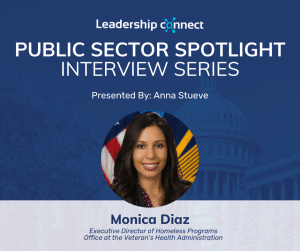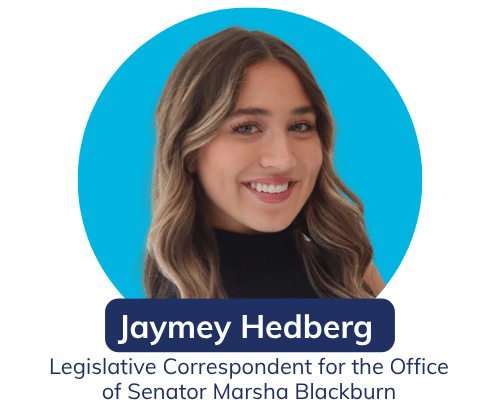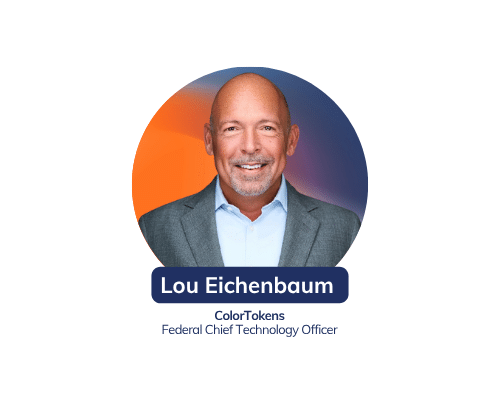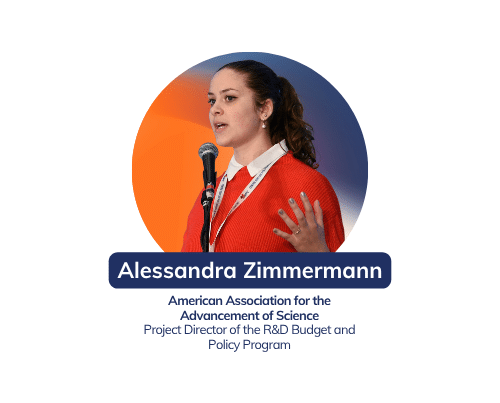Advancing Veteran Care: Insights from Monica Diaz at the Veterans Health Administration

Can you tell me about your career path that’s led you to where you are now?
My career path has been shaped by different experiences and turning points. One major influence was when my husband joined the military. At the time, we were residing in Puerto Rico and that brought us to the United States. The moment he was deployed, I was faced with the challenge of finding a job. Not only that, but getting acclimated to a new country, adapting to the culture, navigating language barriers. I was very blessed and fortunate to have someone that gave me a chance. I got my first job as a Director of Social Services, and leadership saw potential. They then promoted me to Executive Director, and I also worked as a consultant in the private sector. It was a great opportunity that became a turning point for me. At that moment, my husband decided to go to the reserves instead of active duty to allow me to grow in my career, and he pursued his academic goals.
After that, a very critical moment was securing my first government position in the United States at a Veteran’s home in the State of California. That role was such an experience. It was one of the largest facilities in the nation, and the experience taught me how to look at policy in a different way, how to approach government procedures, and diplomacy. All those elements as a Governor’s Appointee – which I was honored to do and love. I also would say it created the foundation for the role that I have now. It was a very critical and special moment in my career.
I do think that a very important aspect of my path that led me to where I am today is my faith. That guided my decision to move to another state and leave a job that I loved. I was again fortunate to find leadership in the VA who recognized my abilities and gave me this current opportunity. This role falls deeply in line with my purpose – looking back at my younger years, I remember really having passion for the mission of ending Veteran homelessness and wanted to do anything I could in that regard. Those experiences and turning points in my life, combined with my faith and making some decisions, taught me to trust that doors open. I feel very blessed to be where I am. I also think that going to college and getting my bachelor’s degree in forensic psychology and my master’s in healthcare administration provided a well-rounded background for me. So those are some of the pieces or steps that got me where I am today.
Which specific policy areas or legislative issues are you most passionate about, and how do you stay informed and engaged in those areas?
I’m deeply passionate about a range of policies. Particularly, social issues and housing. My friends in college teased me a lot because I’m always reading a book, an article, a legislative bill, I just love to read. I often find myself into topics like international relations – I like ethical considerations. Technology, also because it impacts everything and how we apply social policy in some instances.
In terms of my role, I’m specifically interested in policy related to housing. It’s a very complex landscape to think about affordable housing in the United States and the availability of housing – to make it accessible to all income levels is essential to build strong communities, but yet, it’s a very complex policy issue because there are numerous factors. We see this in the research and try to form policies considering economic factors, market factors, legislation around renting practices and housing development, then how it applies in each state as well. I’m very interested in the topic because at the end of the day you want the future generation to be able to have the security that regardless of income, if you’re working, contributing to society, or disabled that you still have the resources for affordable housing. And so, it’s an important area of policy for our country.
I’m also interested in policies related to services and benefits for people with disabilities. I’m a mother of 3, my son has autism, and it’s brought me to look into how our social healthcare systems work to adapt for individuals with disabilities. In many ways, that impacts our homeless population as well. This issue has become very essential for advocacy and making sure that everyone has equitable access to services and support. I like the interconnectivity of those, I’m extremely passionate about wanting the future generations to be able to have access to affordable housing. We need it.
I stay informed about these topics through lots of reading but consistently engaging with a variety of sources. I prioritize reports, policy briefs, and the newest research but also stay connected with advocacy groups and their leaders. It’s a combination of continuous learning and community engagement that keeps me informed and more passionate about this topic.
What do you believe sets the federal government apart as a unique work environment, and how do you navigate its challenges in your everyday work?
I believe the federal government has a unique platform. It offers a range of opportunities to drive impactful change at the national level. The environment allows us to influence policy and public service in a way that resonates across the nation, and quite frankly can impact millions of lives. Advancing core values of our country and policies that are needed to impact the wellbeing of millions of individuals. There is profound opportunity and influence in that way. I personally love the level of this platform because of the impact it can have on such a magnitude of people. However, working in the federal government comes with a set of complexity and responsibilities. You’re a public servant, you must be very judicious with your approach and decision-making, you have to be committed to transparency and very high ethical standards. When making decisions you have to weigh your resources and the policy implications, both good and bad. You have to approach policy with a broad perspective. Folks applying policy in the federal government navigate these challenges every day – It requires adaptability, strong partnerships, strong communication, and action in terms of federal rules and procedures.
I’ve found success in embracing complexity – which is something we don’t hear, usually we’re told to move away from it. You must stay grounded in the missions and leverage the unique resources you have at your disposal to overcome any challenge. Ultimately, what sets the environment apart is the chance to serve the public and impact the nation’s future and that’s a unique opportunity. It’s a responsibility I view with great respect, great honor, and so much gratitude.
Describe a challenging or rewarding project that significantly influenced your growth as a professional. How did you handle the challenge, and what did you learn from the experience?
I can think of two immediately. The first is when I was a Governor’s Appointee in California. Reflecting on my career at that time, one of the most rewarding projects when I started the position was turning the facility into a five-star facility. I wanted to make sure we reached that level of quality in terms of the score and what it meant to get there and maintain it. I remember proposing this to the team, because the leader is just one person, you achieve these things with your team. It was a large facility with numerous services and reaching that milestone is not easy. However, through building that committed team – which was just a phenomenal group – with such dedicated nurses, doctors, social workers, dietitians, and many others health professionals, they believed in the possibility of change. We set high standards and eventually did achieve the five-star rating before I departed. That experience was a work in progress through multiple years, because you cannot achieve that – especially if you want to sustain it – in the blink of an eye. So that was extremely rewarding and reversed my belief that even the most difficult goals can be met with collective dedication and vision.
In my current role, another challenge was the ambitious goal to address homelessness. The goals included permanent housing placement, reducing returning homelessness for people we’ve housed, increasing housability and engaging with unsheltered veterans more proactively. Tackling these objectives requires a lot of navigating in a large organization, while also coordinating with key stakeholders and community-level partners. The real change doesn’t happen at the top, but on the front lines. The front lines are such heroes for implementing policy – they are the ones who can tell you what works and what doesn’t. It’s an ongoing challenge I find very fulfilling; it allows us to drive the progress we see today which is a permanent reduction of homelessness and improvement to Veteran lives.
In achieving those goals, there’s two parts: setting up the goal, and the leadership part. For me, it’s been continuing to grow in that aspect and see how other folks go through their journey with leadership. Leadership brings its own set of challenges and rewards, especially in fostering a positive culture. I’ve learned that caring for your team not only as professionals, but individuals with unique talents is essential. When you build a culture based on trust and value, people feel seen. It opens the door to making people feel safe when communicating honestly, sharing their struggles and aspirations. It unlocks powerful energy, and I find it very rewarding.
What has made you successful in your role and what advice would you give to individuals who aspire to work in the federal government?
I define success very broadly in my life. I feel it’s a combination of balancing your professional aspirations, family, and individual health, both physical and mental well-being. For me, success is bigger than simply meeting goals. It’s about continuous progress. I value progress a lot. Sometimes I’ll meet with my team and say, “this is the goal, we’re here, let’s focus on the progress and process.” Sometimes we have to be careful about balancing goals and focusing on the quality of work and how we get there. Continuous progress and making meaningful impact, I’ve found that to be successful for me.
What has helped me be effective in my role is having the right people in the right roles who are passionate about the mission, they’re here for the mission not themselves, they prioritize the mission. It’s extremely important. Granted, that’s not a college degree – it’s a disposition. I fortunately have a phenomenal team whose work ethics and passion for the mission is immense. I have significant respect for the team that I have. Success, as well, is not about the leader alone, it’s about how the leader fosters an environment where the team members are positioned to contribute their best. When they’re able to do that, and you’re helping to create that dynamic, you build success through progress. A key part of progress for me is what I mentioned earlier about building a culture of respect and open communication. I’m not perfect, but something I’ve done is try to model as much respect and honor to our team. I want them to be comfortable voicing concerns, bringing up new ideas, and giving me feedback even when it’s difficult. It’s not about perfection but about creating that environment where credit is given and celebrated where it’s due, so the team feels seen. Progress happens because of that dedication.
Another element that is critical is strategy. I know that word gets mentioned a lot, but it’s so important. It took me a while to understand, and I always have to remind myself here and there about this – as much as I love strategy. It is so easy to get caught up in the day-to-day tasks. Responding to 100 emails, gathering reports, responding to endless questions or requests, but success doesn’t come from simply staying busy. Anyone can stay busy. It comes from thoughtful strategy action and execution. My team and I spend a lot of time brainstorming, asking questions like, “What is working? What is not? What does the data show?” That intentional approach keeps us grounded in our mission and every so often we pause to remind ourselves of the core goal. I get sidetracked too – what’s important is the ability to immediately redirect and identify when you’re being sidetracked and dedicating 75% of your time to leading and executing strategy with the goal of impacting people’s lives. When we center our work around this purpose, we avoid just staying busy and silence the administrative noise – which is hard to do. If we want to be effective in the federal government, we need to build important relationships, stay grounded in the mission and prioritize progress, action and execution.
What are three qualities you think a senior leader in the federal government should have, and what makes a good leader?
A good leader, from my perspective, needs to embody certain qualities. First and foremost, I think about what I need to succeed for my leaders and my staff. The first would be creating a sense of safety for the team – a leader in the federal government has different pressures but you have to create a sense of safety and transparency for both good news and bad news. Knowing their leader will be alongside them, fully engaged in their work. Leadership is not about only observing or criticizing from the sidelines. It’s being in the arena as often as we can, so we feel the pain too. When you’re in the arena with the team, whether physically or in the heart, you build commitment. You’re not there to critique from a distance, but rather to offer support and make the changes we need to and hold accountability with grace. Including holding yourself accountable.
Another crucial ability is being able to inspire trust and respect. Inspire is a key word – you cannot inspire it by titles, years of experiences, your technical knowledge. It comes from how you communicate with people and how you treat them, how you honor them. It’s crucial. A powerful leader knows how to make the team feel valued and respected. They create a culture where contributions matter. In the broader scope, a leader knows this is important and will do everything they can to foster that. It’s extremely critical, in any area of government, to be a strategic thinking leader. You must keep strategy and visions for the future, to make decisions for that vision. Strategic leaders are not bogged down by the day-to-day. It’s not about tasks or a hundred papers, it’s mainly about the bigger picture. Prioritizing innovation, progress and accountability to staff to make meaningful change for the better.
The last one, maybe the top one, is decisiveness. You have to be a leader that makes decisions – including challenging ones at times, taking calculated risks. Good leaders understand risk is inherent in the job to fulfill meaningful outcomes. They guide their teams to take intelligent, mission-focused risks. Indecision can diminish trust. You have to be clear and intentional with your choices, so teams are moving forward with confidence rather than remaining in the space of what I call the “fear bubble”. Get out of that box, you’re a leader for a reason and you have to inspire your team to make decisions after looking at all of the options. From my perspective working with numerous leaders, I’ve been very fortunate to have leaders with all these qualities. It’s important everywhere, but especially in government.
Word association: What is the first word that comes to mind for each of these?
- Policy – Transformation
- Networking – Empowerment
- Writing skills – Impact
- Federal Government – Commitment
- Leadership Connect – Inspiration






